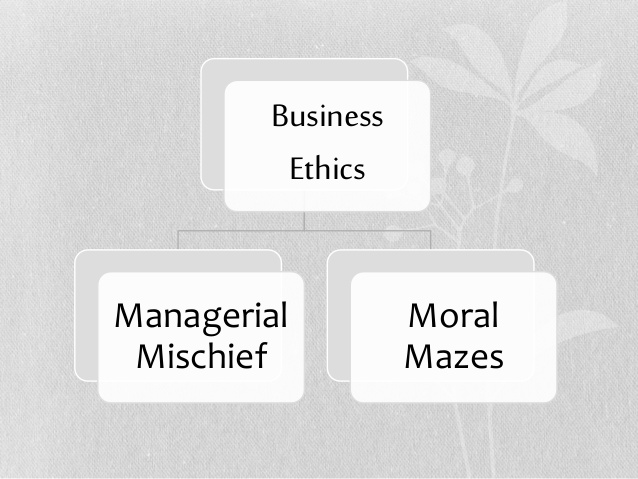Click here to view a video that defines ethics.
Simply put, ethics involves learning what is right or wrong, and then doing the right thing, but the ‘right thing’ is not nearly as straight forward as it seems. As case studies will prove, most ethical dilemmas are not simply a matter of ‘Should Bob steal from Jack?’ or ‘Should Jack lie to his boss?’
Many prophets of ethics believe there is always a ‘right thing to do’, while others believe the ‘right thing to do’ depends on the situation or it’s up to the individual. Many philosophers consider ethics to be a ‘science of conduct’. Some describes it as the fundamental ground rules by which we live our lives. As far as 2500 years back, this ethics debate originated with the classical philosophers Plato, Socrates and Aristotle.
Business ethics focus on what the right things are to do in the workplace. Again this seems simpler than it is. Often, in times of change and turmoil, values that were previously taken for granted, are now strongly questioned. Attention to ethics in the workplace should ensure that when leaders and managers are struggling in times of crises and confusion, they have a strong moral compass. During this course we will also look at the additional benefits a strong ethics management program has for businesses.
To further define the concept of ethics, one can look at the ‘dark side of ethics’, which can be explained by two terms:

Managerial mischief includes illegal, unethical or questionable practices of individual managers or organisations, as well as causes of behaviours and remedies to eradicate them. Many writings on managerial mischief, leads to believe that ethics is a matter of preaching the basics of what is right and wrong. Business ethics should however rather be seen as a matter of dealing with dilemmas that have no clear indication of what is right or wrong.
Moral mazes of management includes numerous ethical problems that managers must deal with on a daily basis, such as potential conflicts of interest, wrongful use of resources, mismanagement of contracts, etc.
In summary, workplace ethics is defined as the principles, norms and standards that guide an organisation’s conduct of its activities, internal relations and interactions with external stakeholders.